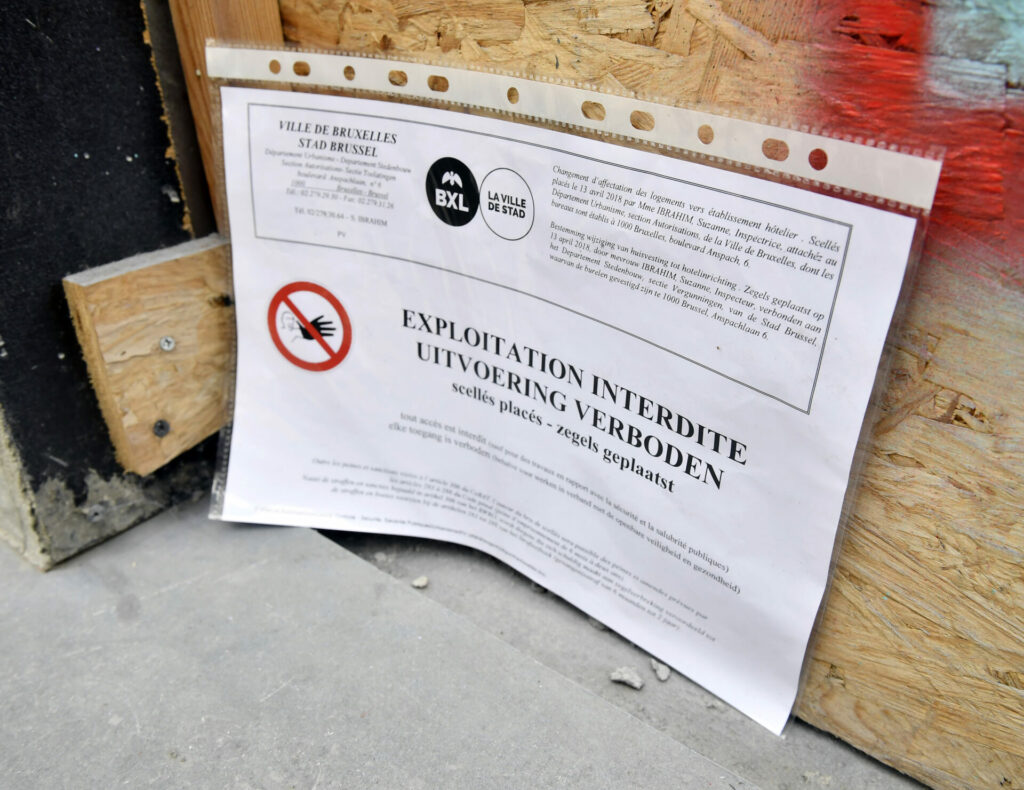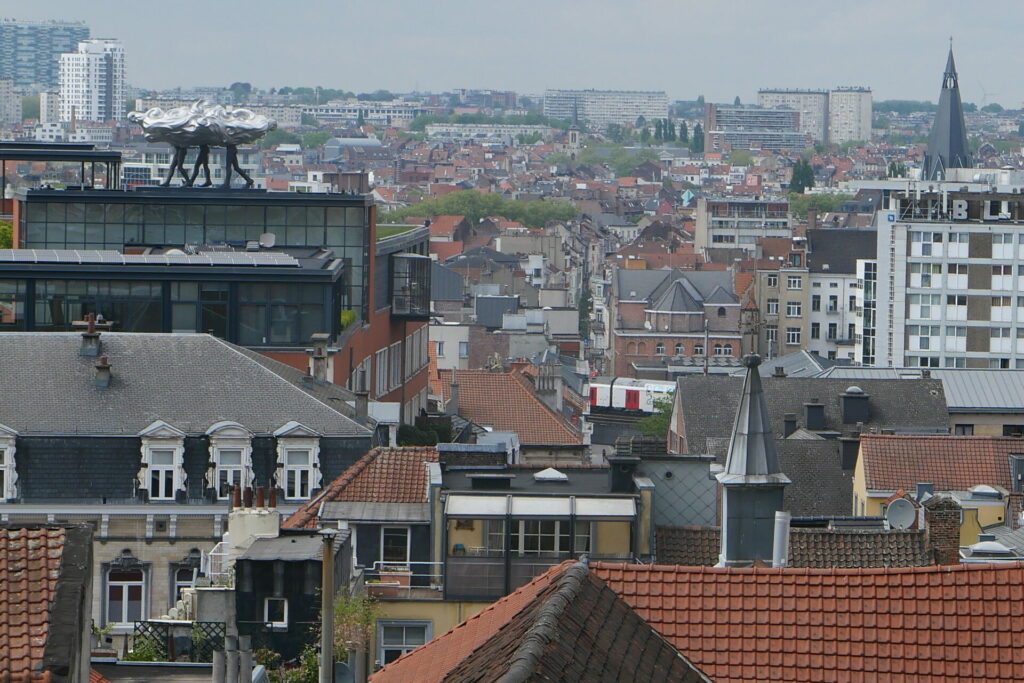To combat scarcity in the Brussels housing market, the so-called 'Airbnb ordinance' that sets out stricter rules on the rental of tourist accommodation via online platforms was this week given the green light in the Brussels Parliament.
After much controversy and legal battles with Airbnb, a draft ordinance to better protect the Brussels rental market was approved by the Territorial Development Commission, making way for its passing into law if accepted by Brussels Parliament at the end of next week.
"We are not against new forms of tourism, any more than we are against new forms of mobility," stressed Brussels Minister-President Rudi Vervoort (PS), alluding to the debate around ride-hailing platform Uber as well. "But we have to find a balance for the liveability of our neighbourhoods."
Legal twilight zone
Central to the new plans are the updated rules for those registering to use Airbnb or a similar platform with the regional public service Brussels Economy and Employment (BEW/BEE). To obtain the necessary approval, operators must meet updated criteria for urban planning, safety standards (including fire protection) and accounting.
The draft is a revision of the first legislation that came into effect in 2016 but which remained a dead letter according to Brussels ministers; an estimated 95% of the tourist accommodation currently on offer are in a legal grey zone because the current registration procedure is unworkable.
Specifically, obtaining an urban conformity certificate – the permis d'urbanisme – is a stumbling block, partly due to different interpretations of the requirements by the region's 19 municipalities.

Protest against illegal Airbnb's in 2018. Credit: Belga/Maarten Weynants
Vervoort stressed that the regulation is not driven by competition between the traditional hotel sector and platforms such as Airbnb, but is rather an effort to protect affordable housing across the entire Capital Region, and particularly in the city centre.
"Brussels City has the highest density of short-stay accommodation units offered on online rental platforms in the region," Anaïs Maes, (vooruit.brussels) Brussels City councillor responsible for Urban Development, told The Brussels Times.
"Thanks to the new ordinance, the various levels of government are continuing their efforts to combat illegal tourist accommodation," she said. "We strive for a healthy social mix, especially in the hyper-centre. This is only possible if we protect the residential function and ensure that renting remains affordable for the people of Brussels."
A lucrative business
In November 2023, Maes ordered an entire building of illegal Airbnb flats to be sealed in the city centre, stressing that these practices are "miles away" from the original idea of Airbnb and are detrimental to the regular rental market. Maes argued that the strategy has already borne fruit, stating "we have already returned more than 500 housing units to the regular rental market in this legislature."
Vervoort also made a direct link with the rental housing market: 62% of Brussels residents are renters, but Airbnb rentals to tourists and temporary visitors are replacing rentals to ordinary Brussels residents – creating scarcity on the regular rental market, resulting in rising prices.
The draft ordinance provided some examples of the market distortion that comes with Airbnb: a two-room flat in Schaerbeek that would be rented at approximately €1,100/month on the traditional market might be offered on the platform for €180/night. Theoretically, that could amount to €5,400 for a whole month – nearly five times the regular rent.
Related News
- Entire building with illegal Airbnb flats sealed in Brussels city centre
- Brussels vs. Airbnb: City authorities win legal battle to enforce tighter limits
- Airbnbs in Brussels directly linked to higher neighbourhood rents
In this example, the income generated would not simply be an additional source of funds for a private individual but could become a lucrative operation scaled up by multi-rental companies. "Since the return on renting a home as a tourist residence in a capital like Brussels is much higher than the return on a classic rental, entire buildings and houses are bought up and lease contracts are terminated to be operated as a tourist residence."
In the opposition, Brussels MP Mathias Vanden Borre (N-VA) criticised the fact that landlords must still apply to numerous government bodies and agencies for the right papers. He expressed concerns that the new ordinance will become "as Kafkaesque as the current one."
The opposition argued that the Brussels Government is demonising platforms such as Airbnb. "Nowhere in the texts is the economic added value created by tourist accommodation mentioned," Vanden Borre said.

